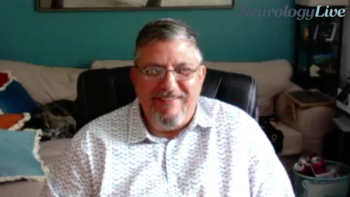
The medical advisor at Tactical Medical Solutions shared insights from both clinical and personal perspectives on the importance of empathy and active listening in managing Parkinson disease. [WATCH TIME: 3 minutes]

The medical advisor at Tactical Medical Solutions shared insights from both clinical and personal perspectives on the importance of empathy and active listening in managing Parkinson disease. [WATCH TIME: 3 minutes]
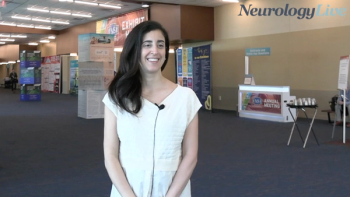
The assistant professor in the Department of Neuroscience at Université de Montréal discussed the importance of weighing the risks of multiple sclerosis against treatment risks, emphasizing individualized care. [WATCH TIME: 4 minutes]

The consultant neurologist at Torbay and Southern Devon Healthcare NHS Foundation Trust discussed the implementation of digital platforms and lifestyle-focused clinics to streamline MS care. [WATCH TIME: 5 minutes]

A panelist discusses how older patients with DMD might benefit from newer genetic therapies including gene therapy and exon skipping, though eligibility depends on specific mutations and absence of pre-existing immunity to AAV vectors.

The chair of neurology at the University of South Carolina discussed findings from a study recently presented at AHS 2025 that linked migraine to autonomic dysfunction, increased risk of atrial fibrillation, and cardioembolic stroke. [WATCH TIME: 5 minutes]

A panelist discusses how a 16-year-old patient with DMD shows more rapid disease progression despite early steroid treatment, with early onset cardiac issues, scoliosis, and increasing upper limb weakness requiring comprehensive specialist care.
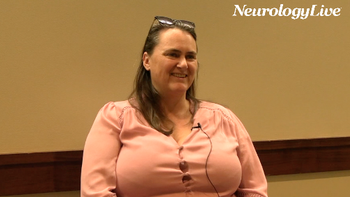
The postdoctoral researcher at the Woolcock Institute of Medical Research highlighted EEG-based evidence supporting ALKS 2680's wake-promoting effects in patients with narcolepsy and idiopathic hypersomnia. [WATCH TIME: 3 minutes]
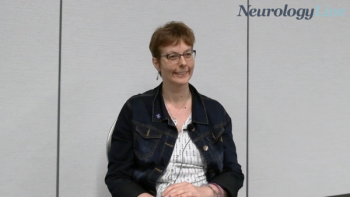
The neurologist and headache specialist at the Montreal Neurological Clinic spoke about a recent national survey presented at AHS 2025 that revealed insightful patient perspectives in migraine. [WATCH TIME: 5 minutes]

The professor of neurology at the Geisel School of Medicine at Dartmouth broke down the FDA approval of STS101, a new DHE nasal powder, and its implications for acute migraine care. [WATCH TIME: 7 minutes]

Experts in ALS care and research shared their optimism about emerging treatments, aiming to deepen scientific understanding, and the potential role of advocacy in accelerating progress. [WATCH TIME: 4 minutes]

Experts discussed the ongoing importance of awareness, funding, and early diagnosis in amyotrophic lateral sclerosis, welcoming the return of the well-known Ice Bucket Challenge. [WATCH TIME: 5 minutes]

Clinicians reflected on the unique, patient-centered format of the ALS Nexus conference and its potential role in accelerating ALS research and promoting care collaboration. [WATCH TIME: 4 minutes]
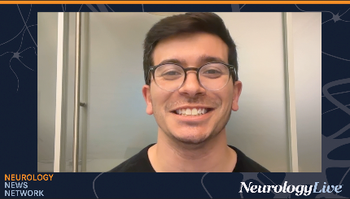
Neurology News Network. for the week ending June 21, 2025. [WATCH TIME: 4 minutes]

A panel of neuromuscular experts emphasized the importance of interdisciplinary care in helping improve quality of life and outcomes among patients living with ALS. [WATCH TIME: 4 minutes]

A panelist discusses how managing chronic insomnia requires a comprehensive, multifaceted approach that integrates behavioral interventions like CBT-I with pharmacologic treatments, guided by thorough sleep assessments and tailored to each patient’s specific sleep patterns and comorbid conditions.

Experts discussed promising developments in ALS treatment, including gene-targeted therapies, emerging biomarkers, and AI-powered tools for diagnosis and patient support. [WATCH TIME: 5 minutes]

The director of outpatient care at Jefferson Headache Center weighed in on the future of PACAP as a migraine target and previewed upcoming innovations at the 2025 AHS Annual Meeting. [WATCH TIME: 3 minutes]

A panelist discusses how comprehensive care for patients with DMD involves early diagnosis, steroid treatment, consideration of mutation-specific therapies like exon skipping or gene therapy, and consistent monitoring by a multidisciplinary clinical team.

A panelist discusses how gene therapy using microdystrophin delivered through AAV vectors shows promise for DMD treatment, though challenges remain with delivery efficiency and determining which patients will benefit most.

The associate vice president of strategy and innovation at the National MS Society highlighted the measurable benefits of health and wellness coaching for individuals with multiple sclerosis. [WATCH TIME: 5 minutes]
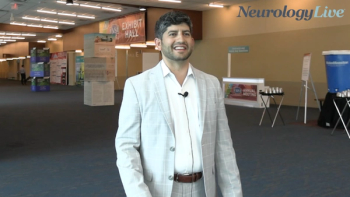
The assistant professor of neurology at the Medical College of Wisconsin talked about the complexities of advanced multiple sclerosis, highlighting gaps in clinical trials and the need for individualized care strategies. [WATCH TIME: 3 minutes]
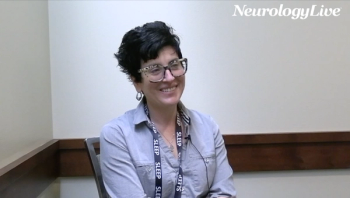
The neuropathologist at Mayo Clinic Florida discussed why EEG-based sleep biomarkers may help detect Alzheimer disease earlier and how they could enhance clinical trial design. [WATCH TIME: 3 minutes]

The chief executive officer of Restful Sleep MD emphasized the importance of tailoring pediatric sleep interventions to each family’s unique structure, values, and challenges. [WATCH TIME: 5 minutes]

The director of the DMD Program at UMass Chan Medical School shared her experience at the 2025 CureDuchenne FUTURES National Conference, held May 22-25, in San Antonio, Texas. [WATCH TIME: 5 minutes]
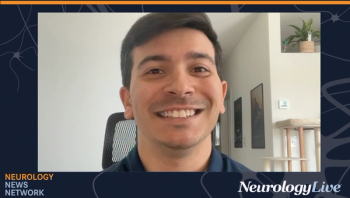
Neurology News Network. for the week ending June 14, 2025. [WATCH TIME: 4 minutes]
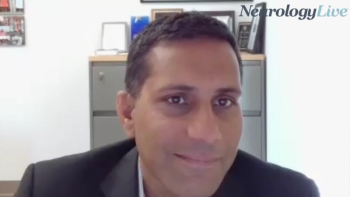
The director of the Center for Brain and Mind Health at Yale University discussed new findings in thrombolytic therapy, stroke monitoring, neuroprotection, and imaging technologies presented at ESOC 2025. [WATCH TIME: 7 minutes]

The director of outpatient care at Jefferson Headache Center reflected on advances in migraine care and the ongoing outpatient challenges in treating this widespread yet under-recognized condition. [WATCH TIME: 3 minutes]

The neurosurgeon at Northwestern Medicine discussed diagnostic approaches, evolving treatment strategies, and the importance of timely referral in managing peripheral nerve injuries. [WATCH TIME: 3 minutes]
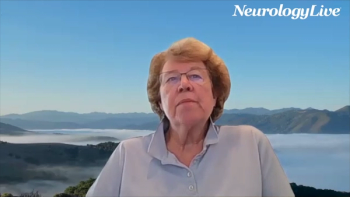
Members from Nuvig Therapeutics discussed how NVG-2089 could improve the CIDP treatment landscape by offering IVIG-like efficacy with a better safety and administration profile. [WATCH TIME: 3 minutes]
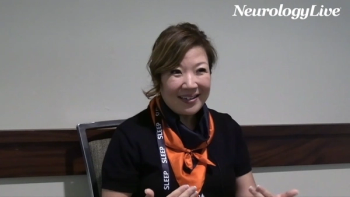
The sleep and stroke neurologist at Barrow Neurological Institute detailed how improving glymphatic function may prevent strokes and enhance recovery from both hemorrhagic and ischemic events. [WATCH TIME: 5 minutes]